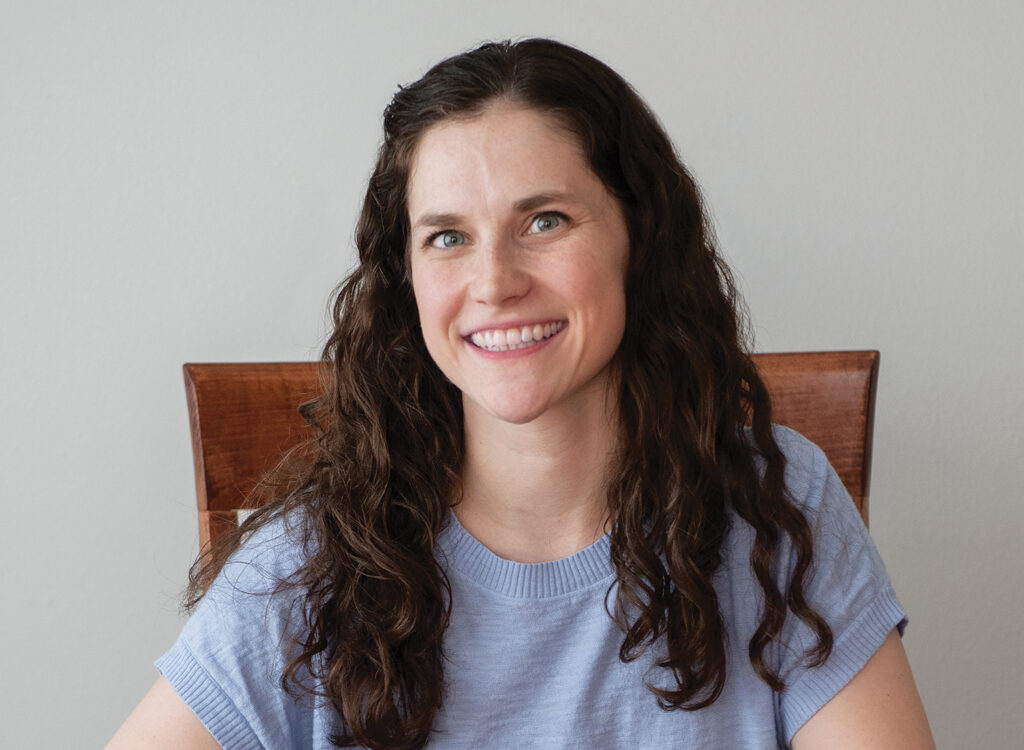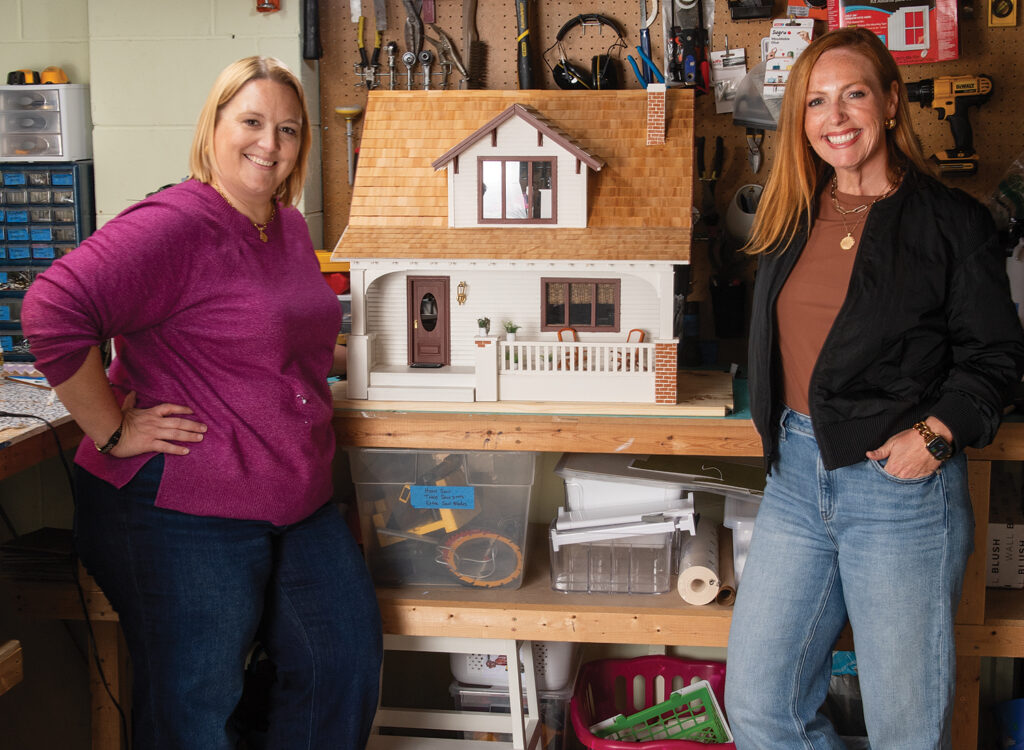UI Office of Strategic Partnerships’ outreach strategy takes shape
Tippie College initiative coordinates access to expert resources

Businesses and nonprofit organizations of all sizes across Iowa that may not have considered partnering with the University of Iowa’s Tippie College of Business as a consulting or analytical resource might want to take another look.
In mid-2021, the Tippie College launched a new Office of Strategic Partnerships and hired a seasoned executive and business consultant, Dave Ernst, to lead the initiative. Its objective is to coordinate current pockets of engagement across the business college, with the goal of both deepening current relationships and creating new engagements with employers statewide.
”It’s a win-win situation because our partners gain solutions and the college gains greater visibility,” Tippie’s dean, Amy Kristof-Brown, said when the initiative was announced in July.
Ernst has held a number of business development positions with several education-related companies. He was most recently senior vice president of state services and business development for Cognia, a Georgia-based developer of assessment tests. He also worked in numerous capacities for Pearson in Iowa City, including regional vice president and vice president/director of the company’s research and innovation network, and at Rockwell Collins in Cedar Rapids.
The Office of Strategic Partnerships provides a single point of entry and connection to Tippie’s collegiate resources for businesses, among them:
- The Tippie Analytics Cooperative, the college’s industry-facing arm for all things analytics. The cooperative builds partnerships throughout the region that result in hands-on projects for Tippie students and data-based business decisions for its clients.
- The Marketing Institute, which partners with outside business clients on marketing challenges.
- The Tippie Leadership Collaborative, a resource hub for companies and nonprofits looking for management expertise through expert speakers, custom executive education and research partnerships.
- The John Pappajohn Entrepreneurial Center, a resource for economic development within the region with its focus on small businesses and startups.
- Building corporate partnerships will increase the number of student projects, live case studies and consulting opportunities that students and faculty will have using real-world data, Kristof-Brown said. Strong engagement with students will help organizations solve business problems and expose them to a high-quality workforce. If done well, partnerships could also lead to increased corporate-generated philanthropic support for the college’s mission.
“We are striving to be a catalyst for transformation through thought leadership, educating innovative problem-solvers, and productive partnerships,” Kristof-Brown said. “This is a bold step toward that vision.”
The Business Record recently interviewed Ernst, along with Mackenzie DeRoo, associate director of the Office of Strategic Partnerships, and Stephen Courtright, director of executive education with the Tippie Leadership Collaborative, for an overview of the initiative’s strategy. Here are excerpts from that conversation:
BR: So the overall mission sounds deceptively simple — connect businesses and other organizations to resources in the college to help them grow — yet extremely challenging to carry out on a statewide basis. How do you get your arms around this?
Ernst: I think the first couple of months you focus internally, and then you set your eyes externally. And with that, what we’ve seen is a growing level of engagement of companies and organizations coming to us that otherwise didn’t really have a way to access some of the talents of the university. So we’re really seeing us being approached in our two-person office as being indicative of the level of activity here in the state of Iowa and elsewhere.
An important aspect of the office will be establishing relationships with different regional markets within the state. So we’re beginning to think about the Des Moines market, the Quad Cities and the Cedar Rapids corridor as having unique needs.
DeRoo: Another piece of our strategy for engaging the business community is to talk with economic development agencies. I just had a quarterly meeting with several people from the university who regularly do that kind of corporate engagement, and the point that came up again was workforce, whether that’s hiring new talent, retaining current employees, or figuring out whether a virtual or hybrid type of landscape is an opportunity or a threat for a state like Iowa.
In my previous role, I did employer engagement and placement for two specific master’s programs, so it was very hiring-focused. But we also knew that we had this great work that Stephen [Courtright] is doing with the Tippie Leadership Collaborative to help companies retain their current employees, to help them upskill, particularly in leadership, so they can be better managers to retain and hire great teams. So when I got to move to this office, it became a way I could package all these opportunities together.
Courtright: Another way to think about Dave and Mackenzie’s role — which has just been a tremendous asset to the college so far — is like a spoke-and-hub model. So the Tippie Leadership Collaborative might have strong relationships with some companies, but [needs] a kind of central office to help connect places internally with one another to really have a full-service solution for these companies. I think the [Office of Strategic Partnerships] just positions us to better serve the needs of Iowa businesses.
[The Tippie Leadership Collaborative, or TLC, launched just a little over a year ago, provides customized services for organizations, including MBA programs as well as research, consulting and conferences for companies on various topics.]
Ernst: For instance, we talked to one company that got excited about [the Tippie Leadership Collaborative’s] education offerings — they had some workforce managers that needed additional training and upskilling. … So they’re looking at the unique partnership that [the college] has to do that. … Whereas we talked with another company where one of our alumni came back and said, “We’d really like to support the university; we have some internship opportunities.” Another day we got a request from a company in Des Moines that said, “We have a need for these kinds of students for an internship; what do you have?” So every day it’s a different part of this hub-and-spoke that Stephen spoke about, and we try to direct traffic and follow up on those requests.
Courtright: Looking to the future, one of [the TLC’s] biggest priorities that we’re working on now is to set up a nonprofit fund that’s essentially donor-funded. So, say the city of West Liberty’s library comes to us and says, “We really need to formalize some of our HR processes.” Well, we [can say we] have a fund that can help pay for faculty time to help them with that. That’s a big priority of ours right now to even better serve those organizations that don’t have the resources to afford that kind of service.
What can the Office of Strategic Partnerships do to support rural businesses?
Ernst: When I met with a CEO panel of small to medium-sized businesses — some of them startups, some family-owned businesses — their question was: How will the university support us, versus maybe a larger corporation like Collins or Principal? … So it allowed us to go back and do some thinking about that. We have JPEC, which is an acronym for the John Pappajohn Entrepreneurial Center, and they support small to medium-sized sort of growth, early-venture kinds of businesses, and they support internships for students and pay half of the fee for that company for that student to do an internship. So we do use the JPEC, [which is] part of the Tippie College of Business, to support local businesses. In another program, that’s principally through Tippie’s Executive Education program, we partnered with a local chamber to offer [the program’s] services through a chamber, so it provides access for anybody, versus a direct-to-company model. We’re using the Iowa City Area Business Partnership to do that. So we are definitely looking at how we reach those kinds of businesses.
Courtright: With the [Iowa City Area Business Partnership], we’ve got a session going on about hiring and retaining talent, engaging employees and preventing burnout during COVID. We have a session on diversity and inclusion. These are topics that CEOs in the Business Partnership want to hear about, and they feel like Tippie has the expertise on those topics. For us personally, we have a real vested interest in contributing to the rural areas, coming from very rural backgrounds. My dad managed small cheese plants in Wisconsin; Allison [Yoder, events and administrative coordinator] grew up on a soybean and corn farm. I know I mentioned [helping] the big corporations … but we’re really looking for a diversified portfolio.
Are there any new initiatives under development in addition to the existing programs that will be under the Office of Strategic Partnerships umbrella?
Ernst: Absolutely. There are several things that we are looking at. In the area of risk management and insurance, we’re evaluating what it would mean to offer a degree program in insurance. And we have some growing opportunities in marketing. Our marketing major continues to grow, as well as our analytics program. So we’re looking at an inside sales lab, setting those up for students to work with companies to provide some inside sales support and resources. That’s another one that’s sort of in the gestational period. We continue to grow and support our capstone projects with students and companies, and formalize those opportunities. That’s an established opportunity, but one we’re really trying to put some real growth around, and expand that to other undergraduate programs. Finally, one of the things we’re thinking about is an internship coordinator. There are a lot of opportunities for students and companies to have internships — to try students out before they buy, if you will. We have our Pomerantz Career Center that does all that, but we want to personalize it to where we can really reach students to pull them into these internships and get them on their way.











